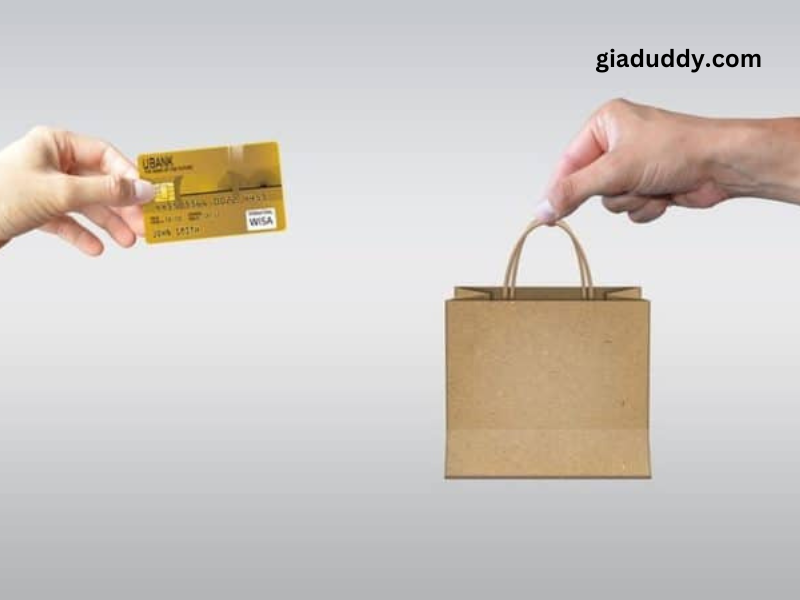Credit cards offer many conveniences and benefits, from cashback rewards to points on purchases, travel perks, and more. But using a credit card for financing purchases isn’t always the best financial decision. While credit cards make spending easy, they can also lead to substantial financial strain, especially if not managed responsibly. High-interest rates, debt accumulation, and potential impacts on credit scores are just a few of the negative aspects associated with credit card usage. Understanding which factors make credit cards less favorable for financing purchases is essential for making sound financial choices.
In this article, we’ll explore various reasons why financing purchases with credit cards might not always be a positive decision. Whether you’re considering using a credit card for large expenses, routine purchases, or emergencies, it’s essential to weigh both the benefits and potential pitfalls.
The Temptation to Overspend
Ease of Access to Credit
One of the primary reasons using a credit card to finance purchases can be detrimental is the ease with which it allows consumers to overspend. Unlike cash or debit, credit cards offer a revolving line of credit, making it easier for individuals to make purchases beyond their means. This convenience often leads people to buy things they may not afford if they had to pay with cash.
Psychological Impact of Non-Tangible Spending
Studies show that people tend to spend more when using credit cards compared to cash. The psychological impact of not physically seeing the money leave your hands makes spending seem less impactful. This mental disconnect between spending and financial impact can lead to higher-than-anticipated bills, which can be challenging to pay off if finances are tight.
High Interest Rates on Unpaid Balances
Interest Compounding
Credit cards are known for their high-interest rates. When credit card balances aren’t paid off in full each month, interest is charged on the remaining balance, and it compounds. This means that not only is interest charged on the original purchase amount, but also on any previous interest that has been added. The result can be a rapidly growing debt that becomes difficult to manage over time.
Impact on Long-Term Finances
For those unable to pay off balances in full each month, the cumulative effect of interest charges can significantly impact financial stability. Using a credit card to finance purchases ultimately means that items will end up costing more than their original price due to accrued interest. This makes credit card debt one of the least cost-effective ways to finance purchases over time.
Credit Card Fees and Hidden Charges
Annual Fees
Many credit cards come with an annual fee, which can range from modest amounts to several hundred dollars depending on the card’s features. While some cards offer benefits that may offset the annual fee, for many users, the cost outweighs the rewards. When financing purchases with a credit card, it’s essential to consider this added cost in evaluating the true expense of credit card usage.
Late Payment Fees
Late payment fees are another downside to financing purchases with credit cards. If a payment is missed or not made in full by the due date, the card issuer may charge a late fee, which can be as high as $35 or more. Consistent late payments can lead to a cycle of accumulating fees, making it even harder to keep up with payments.
Foreign Transaction Fees
When making purchases outside your home country, many credit cards charge a foreign transaction fee. This fee can add an additional 1% to 3% to your purchase amount. For those who frequently travel or make international purchases, these fees can accumulate quickly, making it an expensive choice for financing.
Negative Impact on Credit Score
Credit Utilization Ratio
The credit utilization ratio, which compares your outstanding credit card balances to your credit limits, is a key factor in determining your credit score. Ideally, your credit utilization should be below 30%. When you finance purchases on a credit card and carry a balance, your credit utilization rate increases, which can lower your credit score. A lower credit score may impact your ability to secure loans, mortgages, or favorable interest rates in the future.
Potential for Missed Payments
With large balances and mounting interest, credit card holders might find it challenging to make timely payments. Late or missed payments are reported to credit bureaus and can significantly impact credit scores. Negative marks on a credit report can remain for years, affecting future financial opportunities and making it harder to achieve financial stability.
Debt Accumulation and Financial Stress
Minimum Payment Trap
Credit cards typically allow users to make minimum payments, which is the lowest amount a person can pay without incurring additional penalties. However, paying only the minimum amount leads to extended debt repayment periods and significantly more interest paid over time. It’s a cycle that can create a large debt burden, leading to financial stress and limiting future spending options.
Financial Burden on Emergencies
For individuals who heavily rely on credit cards, debt accumulation can create a significant financial burden, leaving them unprepared for unexpected expenses. Medical emergencies, car repairs, or job loss can lead to additional debt if credit cards are the only means of payment available. This reliance on credit to cover emergencies perpetuates a cycle of debt that can be challenging to escape.
Lack of Budgeting Discipline
Loss of Spending Control
Credit cards can make it harder for some people to maintain control over their spending. When paying with credit, there is often a delay between the purchase and the payment, creating a disconnect between spending and available funds. Without careful tracking and budgeting, credit card usage can quickly lead to overspending, especially if one isn’t keeping close tabs on purchases.
Absence of Financial Boundaries
Credit cards provide a line of credit that can feel like “extra” money, even though it is borrowed. This lack of financial boundaries can contribute to poor financial decisions and lead to debt accumulation. For those who struggle with budgeting, financing purchases with a credit card often leads to further financial challenges down the line.
Rewards and Incentives: A Double-Edged Sword
Misuse of Rewards Programs
Many credit cards offer rewards programs, such as cashback, travel points, or discounts on specific purchases. While these incentives can offer value, they may encourage overspending in pursuit of rewards. When people prioritize earning points over their actual financial situation, they risk spending more than necessary, which could lead to higher balances and subsequent interest charges.
Unrealized Savings
Often, credit card users justify purchases with the idea that rewards will offset the costs. However, many fail to maximize these benefits due to restrictions or expiration dates on rewards. Additionally, any rewards earned are typically overshadowed by the interest charged on unpaid balances, making the net savings minimal or even negative.
Alternatives to Financing Purchases with a Credit Card
Savings-Based Purchases
One of the best alternatives to credit card financing is to save for purchases in advance. By setting aside money each month, individuals can avoid debt and make purchases without the burden of interest charges. Savings-based purchases encourage a more mindful approach to spending and ensure that financial decisions are in line with available resources.
Personal Loans and Payment Plans
For larger expenses, consider using a personal loan or setting up a payment plan with the retailer. Personal loans often come with lower interest rates than credit cards and structured repayment schedules, which can make budgeting easier. Some retailers also offer interest-free payment plans, which can spread the cost over time without additional fees.
Debit Cards and Budgeting Apps
Using a debit card or budgeting app can help individuals keep track of their spending without falling into debt. Debit cards limit spending to available funds, preventing overspending, while budgeting apps allow for detailed tracking and planning. These tools can be highly effective for managing finances without resorting to credit card debt.
Conclusion
While credit cards offer flexibility and a range of benefits, using them to finance purchases is not always a positive choice. The high-interest rates, accumulation of debt, and potential impact on credit scores are critical factors to consider. Credit cards are best used for short-term purchases that can be paid off in full within a billing cycle to avoid interest charges.
Making financially sound decisions involves understanding both the advantages and pitfalls of credit cards and exploring alternative methods for financing purchases. By considering the implications of credit card debt and the long-term impact on personal finances, individuals can make more informed decisions and avoid the potential financial strain associated with credit card financing.


